The Halloween Brexit day is fast approaching but the stakes are high and the drama is not over yet.
First up is what is expected to be a historic house of commons showdown this weekend.
It has been dubbed “Super Saturday” but what will actually happen and what will it mean for everyone?
– What is “Super Saturday” and why does it matter?
The house of commons usually sits from Monday to Thursday, and on the occasional Friday. But on Saturday 19 October, there will be an extraordinary sitting of parliament – the first on a weekend since April 1982 – to discuss Boris Johnson’s Brexit deal.
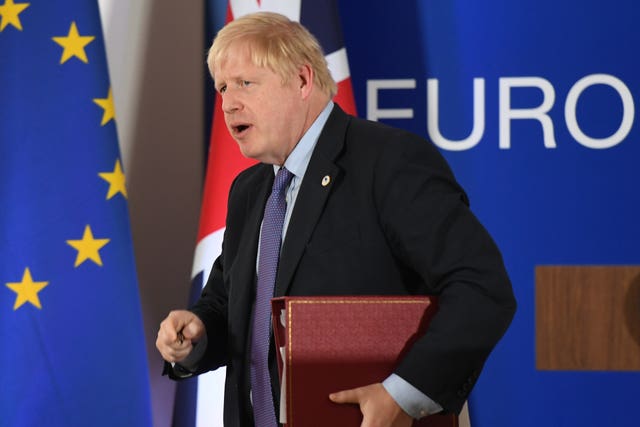
On Thursday, MPs approved a motion to hold the first weekend sitting of parliament since the Falklands conflict.
If parliament does not vote for the agreement on Saturday, Johnson faces an almighty clash over whether he will request a further Brexit delay from Brussels as he is compelled to under the Benn Act.
– What will take place on Saturday?
The commons will sit from 9.30am and the Lords will sit from 10am. The first order of business will be a statement from the prime minister to update the house after the EU Council summit.
After Johnson’s statement, the government is expected to move its motion seeking MPs’ approval for a Brexit deal.
MPs have been able to table amendments since Thursday night, and Speaker John Bercow can select as many amendments as he wants, with votes taking place on those before the vote on the government motion.
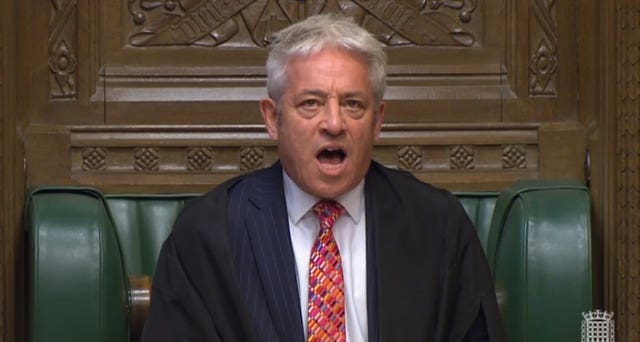
The debate on the motion can run until any time on Saturday, and despite what people thought – and perhaps hoped – there is not a 2.30pm cut-off time.
But there should be indications of the sitting length on the day.
– Will MPs vote for the prime minister’s deal?
The vote could come down to the tightest of margins but it is understood the prime minister is working hard to win over MPs.
DUP MP Sammy Wilson has said his party would continue to hold firm and will vote against the deal on offer, while Nicola Sturgeon has ruled out her MPs in the SNP backing the deal.
Jeremy Corbyn was quick to dismiss the agreement, and said Labour could not support the deal. But, this is where things get interesting.
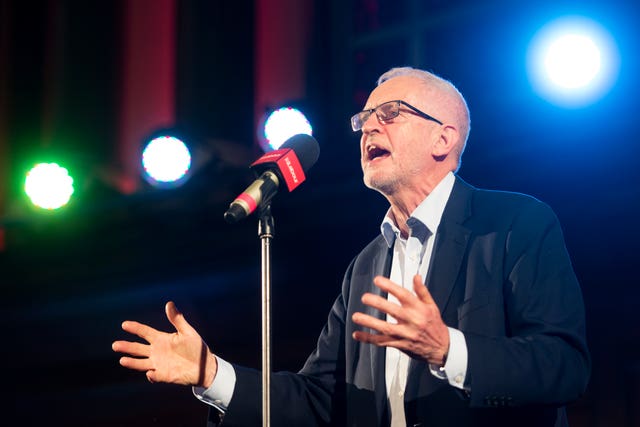
Attention has turned to the Labour Party, with a focus on what its MPs in Leave-voting seats will opt to do. The Daily Telegraph reported that between 10 and 15 Labour MPs are prepared to back the deal.
– Is it as simple as one yes or no vote?
No. MPs amended the Saturday sitting motion by approving a proposal tabled by former Tory minister Oliver Letwin, who now sits as an Independent.
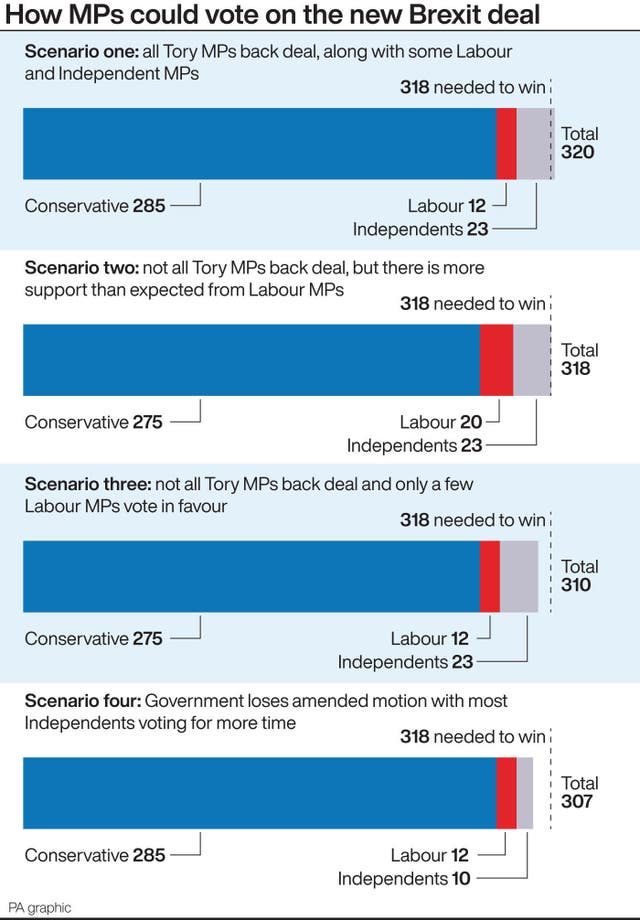
Letwin explained this would allow MPs to move amendments to the government’s proposal and for them to be voted upon if selected by the Speaker, as mentioned above.
The SNP has tabled an amendment to reject the deal, demanding an immediate extension to the 31 October deadline and a general election.
And Letwin has put forward an amendment that, if accepted and approved, would force the government to pass the European (Withdrawal Act) Bill before a meaningful vote could be held.
– What will happen if the deal passes?
If the prime minister is successful in Westminster, he will then have to hope that MEPs in the European parliament give it the same backing – a point reiterated by European Commission president Jean-Claude Juncker in a joint press conference with Johnson on Thursday.
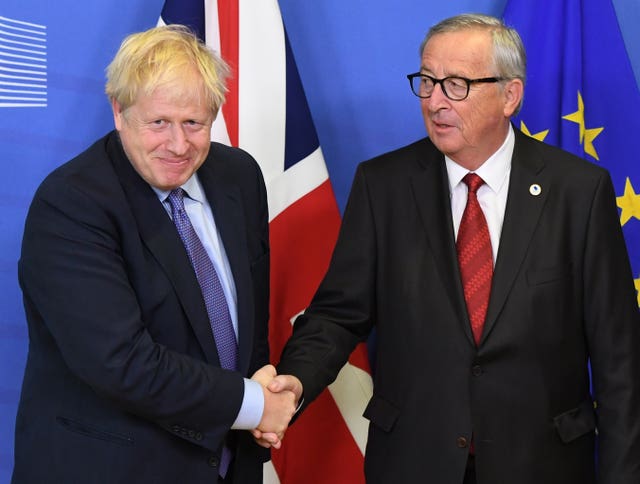
Attention will also turn to passing the necessary legislation to make Britain’s EU withdrawal legally enforceable.
The prime minister would need to find a further majority for the European Union (Withdrawal Agreement) Bill in order to put Brexit on the statute books.
– But what if the deal is rejected?
If parliament does not support the deal, Johnson is compelled under the Benn Act to request a further Brexit delay to the end of January.
EU Commission president Jean-Claude Juncker piled the pressure on MPs to back the deal by raising doubts over any further delay to the UK’s departure past 31 October.
But European Council president Donald Tusk said if there is a request for an extension he will “consult with other member states to see how they react”.
– How rare is a Saturday sitting?
The commons has only sat on four Saturdays since 1939, including on 2 September that year, due to the outbreak of the Second World War.
The last time there was a Saturday sitting was 3 April 1982, following the invasion of the Falkland Islands.
MPs also sat on Saturday 30 July 1949, in order to finish up business before the summer adjournment as well as on Saturday 3 November 1956, due to the Suez crisis.
















